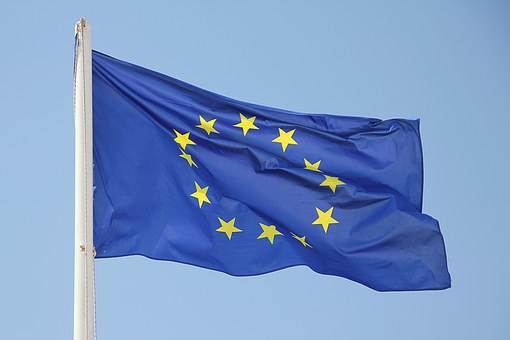 The EU Parliament has narrowly elected the first female to lead the European Commission as its president. Ursula von der Leyen, a German national, born in Brussels, will take over from outgoing president Jean-Claude Junker when he steps down at the end of October. With the leading contender for leader of the British Conservative Party, Boris Johnson, pledging to pull the UK of the EU with or without a deal on that very date, her assumption of power could be at a period of great turmoil for the EU.
The EU Parliament has narrowly elected the first female to lead the European Commission as its president. Ursula von der Leyen, a German national, born in Brussels, will take over from outgoing president Jean-Claude Junker when he steps down at the end of October. With the leading contender for leader of the British Conservative Party, Boris Johnson, pledging to pull the UK of the EU with or without a deal on that very date, her assumption of power could be at a period of great turmoil for the EU.
Ms von der Leyen, currently serving as Germany’s defence minister, obtained the support of 383 MEPs, giving her a narrow majority of nine. Her election was controversial since EU states declined to follow the nomination of the European Parliament’s “spitzencandidate”.
Speaking after her confirmation as EU Commission President-elect, Ms von der Leyen said: “The trust you place in me is confidence you place in Europe. Confidence in a united and strong Europe, from east to west, from south to north. The confidence in a Europe that is ready to fight for the future rather than fight against each other.”
On the subject of Brexit, she has adopted the same position as her predecessor, that she is open to a further extension of the A50 notice period, but it would need to be “for a good reason” – this is now taken to mean to allow the UK to elect a new government or conduct a fresh referendum. The consistent position of the EC s that the withdrawal negotiations are definitively closed and that the Irish backstop is non-negotiable. Both Hunt and Johnson claim that the backstop will be dropped and that further negotiations are possible. Both insist that they are prepared for the UK to crash out of the EU with no deal and no transitional period, although Hunt is open to further delay if justified by the negotiations (that he imagines will happen).
On her preference for next British PM, Ms von der Leyen was suitably diplomatic: “I do not know of them personally and there is a golden rule which I respect that I will work in a very constructive way with every head of state and government.”
The political situation in the UK remains very fluid with a clear majority of MPs opposed to a “no deal” Brexit, but little in the way (yet) of concrete measures to oppose it. There is growing support for a “People’s Vote” as a way to solve (hopefully) the Brexit issue, but it still doesn’t have enough support in parliament to make it happen, despite a recent shift in Labour Party policy which now demands that any deal, or a no deal outcome must be put back to the electorate. One hopes that Ms von der Leyen will have access to an ample supply of headache medicine!
